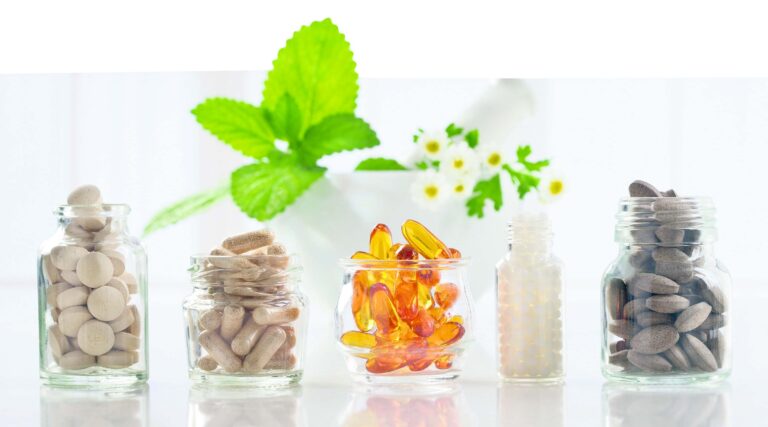Knowing your vitamins is no longer as easy as A, B, C – these days you also have to worry about D, E, K, B1 and B2 all the way up to B12.
Shelves upon shelves of attractively packaged supplements promise to boost your immune system, help your organs do their jobs and give you energy: it’s certainly enough to pause for thought as you make your way through the pharmacy.
There are many reasons we need supplements. Common ones include:
Vitamin D, which helps keep our bones, teeth and muscles healthy, is usually received from sun exposure. People whose skin does not get exposed to the sun, and those with darker skin tones, should consider taking vitamin D supplements year-round.
B12, and possibly iodine, for people on a vegan diet who miss out on vitamins contained in animal products.
Folic acid is recommended until week 12 of pregnancy and for women trying to conceive, to reduce the risk of neural tube defects in babies.
Picky eaters and those on a limited diet may need supplements depending on what foods are missing from their diet.

Dietitian Hannah Jones, the owner of Island Nutrition, said needs vary from individual to individual, so it’s crucial to get a proper understanding of what will work for you.
Ms Jones said that while vitamin supplementation is popular in Bermuda, some people have not done adequate research.
“Some don’t know where to start and, let’s face it, those shelves on supplements can be overwhelming. Others are influenced by the latest health trends,” she said.
Island Nutrition educates its clients about how their diet provides nutrients and how to better balance this, which may highlight areas for supplementation.
It can ensure its advice is impartial because it does not sell vitamins or supplements or have any financial interests in any company that does.
But can the same thing be said for pharmaceutical companies?

Another dietitian at Island Nutrition, Leila Bateman, said: “The nutritional supplement industry is an ever-growing industry with large profits to be made.
“This does not mean its conception was just to take your money. From a public health perspective, there are instances where supplementation has made a dramatic difference to the health of millions of people.”
In turn, this does not mean you should take anything for granted.
Ms Bateman explained: “Unfortunately, vitamin supplements are not well regulated. The marketing and advertising behind these products can also be misleading.
“There are risks associated with supplements such as drug-nutrient interactions and toxicity.”
Ms Jones said the best approach is to take ownership of your health and seek the advice of a registered dietitian, who can take information from a blood test and assess the overall quality of your diet, health, symptoms, nutritional concerns and medications.
“You may also want to do your own research on the matter, but it is important to know where to look for evidence-based, reliable, unbiased information,” she said.
“There are a lot of unqualified influencers out there, and paid advertisements which are designed to look like genuine professional advice.
“Getting the correct information can help save money on unnecessary products and ensure safety.”
She also warned of the dangers of taking too many vitamins.
“Many people believe that they are totally safe, however there are risks, especially with high-dose individual supplements,” she said.
The bottom line? Supplements are there to supplement your diet if needed – not to replace a healthy well-balanced diet.
Ms Jones said: “There are many benefits provided by eating a meal that a pill or powder simply cannot provide.”

